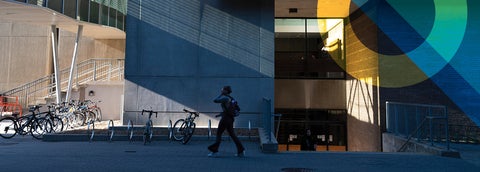
Waterloo at 100 | Strategic Vision and Plan
In the 1950’s, the University of Waterloo disrupted post-secondary education in Canada with an unconventional model for education. In today’s rapidly changing world, now is the time to rediscover what makes us unconventional as we look towards humanity’s future.
Who we are
We are a leading global research-intensive university, renowned for entrepreneurship and innovation, providing co-op and work-integrated learning at scale with impact.
What we envision
A community of curious, collaborative, innovative and entrepreneurial problem-solvers and leaders who seek to understand and identify equitable and sustainable solutions for the future of humanity and our planet.
Our vision and strategic plan
The University of Waterloo set out to answer: What do we aspire to be known for by our 100th anniversary in 2057? Thousands in the Waterloo community participated in consultations and discussed the University’s future. Drawing on the unconventional spirit of our founding, our community put forward ideas to reinvent the culture of our institution as we build a better future.
The result was Waterloo at 100, a long- term strategic vision for the University of Waterloo, giving us a longer horizon than the 5-year cycle of traditional strategic plans. To keep us on track, we annually set short-term strategic planning priorities against this long-term vision.
